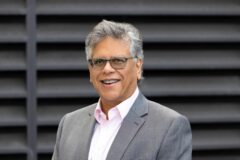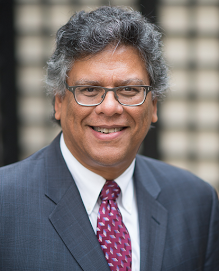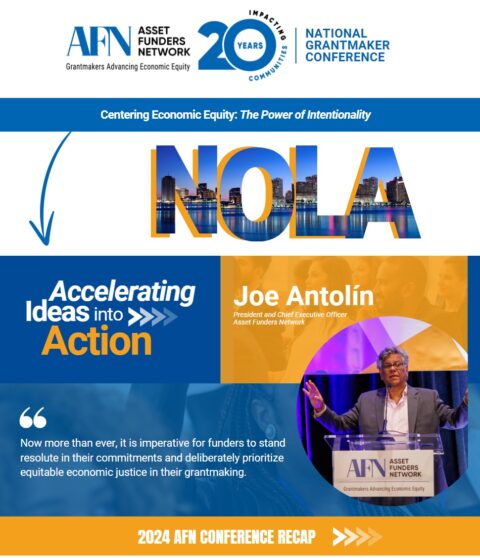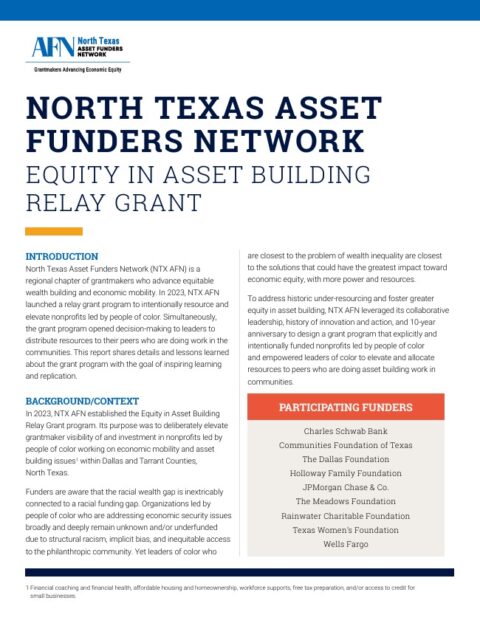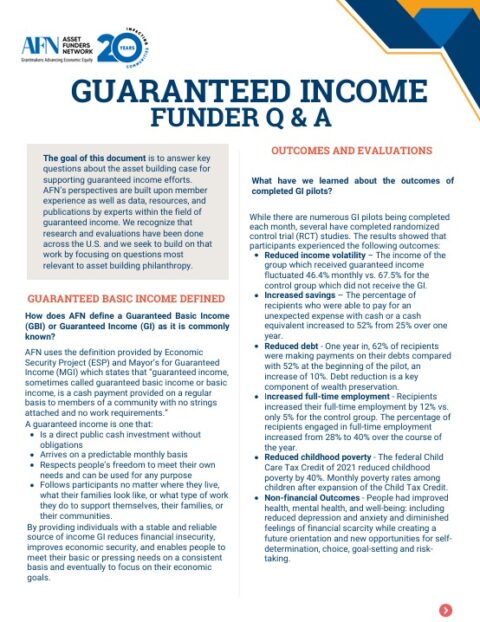FROM THE DIRECTOR
SEPTEMBER 2020
Across the country, all of us are coping in various degrees with more time at home—isolated or overwhelmed within our family or home circles. In different ways, we are coping with decisions or actions fraught with risks from the pandemic, an uncertain income, or unknown future. The political landscape, undeniable structural racism, and a greater awareness of our roles to confront and reimagine systems add yet another layer. Changing the unacceptable status quo requires more crisis relief coupled with sustained economic recovery, and most importantly the commitment to reimagine the economic systems and build equitable prosperity and well-being. Philanthropy, more than ever, needs to influence, push the perceived limits, and lead.
Even as we contemplate all of that stress and uncertainty, we need to recognize there are growing numbers of our neighbors experiencing additional severe levels of harm. For this growing number of people, intimate partner violence (IPV) — with even fewer routes to safety, economic recovery and rebuilding — is yet another level of the unacceptable status quo. By reliable estimates, intimate partner physical violence has doubled. Equally troubling is that the increased severity of cases is being documented, even as fewer incidents are officially reported to the authorities. It makes sense—the crisis relief system largely funded by government and philanthropy has been premised on relocation and – in some places – homeless prevention.
Like many other fissures in the economy, this, too, is being revealed as an imperfect — indeed, inadequate response. What are we getting wrong about IPV? There is not enough emergency housing, health care, economic relief, and support for a stable, total rebuilding. Part of the answer lies in how we frame the response, the timeframe, and the goals.
When we approach IPV solely through crisis intervention, we address an immediate, short-term need to provide relief, but we are not contemplating much less addressing an equitable rebuild because we are not framing it as an economic security and asset-building issue. Yes, survival and crisis intervention is important, but we also need to find the additional resources to commit to support the rebuilding of a life, economic stability, and ability to thrive.
In fact, the number one reason survivors of domestic abuse stay in or return to abuse is because they simply can’t afford to leave or stay safe. This means that in order to disrupt the cycle of violence in the U.S., we must prioritize survivor wealth. In partnership with FreeFrom and the New York Women’s Foundation, AFN’s newest report, Making Safety Affordable: Intimate Partner Violence is an Asset-Building Issue, explores how philanthropy can better address relief, recovery, and rebuilding both with direct investments and funding of systemic advocacy. Register for our live discussion with the authors October 8 at 2:00 p.m. (ET). All participants will have the opportunity to download a free copy of the report.
We also continue to explore the bi-directional connection of health and wealth. Racial health disparities, reflecting systemic racism creating socioeconomic and community disparities have been revealed more starkly as a result of COVID-19. The economic disruptions have also been disproportionate in their racial impact. Now is the time for change to reimagine an equitable economy in the future. Philanthropy has supported efforts to establish many of the best ideas and needs to not let this window pass. The need to rethink and reform wealth stripping by private and governmental systems, to support equitable asset building initiatives, to fund advocacy to change the “race neutral” policies that perpetuate racial, ethnic and gender inequities, and to fund community efforts to create living conditions that support the health and economic well-being for all of us, is developing before us. As we continue on this journey toward an equitable future together, you are invited to join the discussion, Wealth and Health Equity: Investing in Structural Change on September 29, 2020 at 1:00 p.m. (ET), with Dr. Annie Harper, Ph.D., Program for Recovery and Community Health, Yale School of Medicine and Dedrick Asante-Muhammad, Chief of Race, Wealth and Community at the National Community Reinvestment Coalition, as they explore these issues as part of the latest installment of our health-wealth series on adults.
Continue to engage. Keep change happening to build an equitable and inclusive economy in community after community. Join AFN and share your wisdom, experience, and leadership as you connect with more funders across the country.
